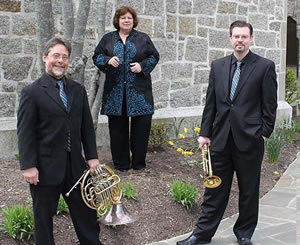The true Christmas season is an endangered species. With stores advertising for Christmas shoppers before Halloween, by the time December 25 arrives, many people seem more than happy to let that date be the end of the season, rather than the beginning of a twelve-day festival which does not end until Epiphany is celebrated on January 6th. Even churches (which should know better) schedule their special Christmas music programs, parties, and caroling well ahead of 12/25, and the NC Symphony is no different. Bach wrote this music to be heard in January.
Billed as “Bach’s Christmas Oratorio,” this program was actually the last three of the six cantatas which together form this work. In Bach’s time, the cantatas were heard only one at a time, on separate days. The first three were for December 25, 26, and 27; the fourth, fifth, and sixth cantatas were performed on New Year’s Day, the Sunday following January 1, and January 6. Only around 1844 did the first performance of all six in succession take place.
Both the NC Symphony and the NC Master Chorale appeared in more Baroque-sized ensembles than their usual numbers. While there were still more musicians than Bach ever had at his disposal, the result was nevertheless a fine, balanced sound. Conductor Grant Llewellyn‘s clear and concise direction brought out the best singing I have heard from the Master Chorale, joined by immaculate playing by the chamber-sized orchestra. The list of high points is long: stellar oboe and oboe d’amore playing, undergirded by ‘cellist Bonnie Thron‘s continuo lines; Concertmaster Brian Reagin‘s skillful traversal of the technical pitfalls of the fifth cantata’s trio; bass Philip Cutlip‘s arioso in the fourth cantata, joined by the Chorale’s soprano section; tenor Richard Clement‘s model recitative singing; and the D-trumpet bravura florishes in the chorus which concludes the final cantata.
Llewellyn’s just-plain-too-fast tempo for Clement’s first aria (“Ich will nur dir zu Ehren leben”), made somewhat ironic that part of the aria’s text which says “give me strength and courage”; long sixteenth-note melismas at breakneck speed require those qualities, plus a little luck. But the rest of the performance was excellent. Clement’s and Cutlip’s fine singing was matched by soprano Kristen Watson‘s crystalline sound. Only mezzo-soprano Krista River‘s vibrato seemed out-of-place among the vocal quartet.
It was good to have both the original German text and a mostly-literal English translation to follow, even when the German “du” was often mistranslated as “thou” rather than “you.” One also hopes that Meymandi Concert Hall will some day have a real pipe organ to add its voice to the NC Symphony’s, whether in continuo or solo roles.
The program will be repeated at 8:00 p.m. on Saturday, December 7, providing another opportunity to hear a truly excellent performance of one of J.S. Bach’s masterworks. For details, see the sidebar.











